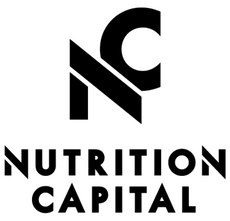In the world of sports nutrition and fitness supplements, creatine has long held the spotlight for its role in enhancing strength, power, and muscle performance. As the supplement landscape evolves, different forms of creatine have emerged, each claiming unique benefits. One such variant is Creatine Hydrochloride (Creatine HCL). In this blog post, we will explore what Creatine HCL is, how it compares to the well-established Creatine Monohydrate, and what considerations you should keep in mind when choosing between the two.
What is Creatine HCL?
Creatine HCL, short for Creatine Hydrochloride, is a form of creatine where creatine molecules are bonded with hydrochloric acid to enhance solubility. This chemical modification aims to address one of the potential drawbacks of Creatine Monohydrate—its limited solubility in water, which can sometimes lead to gastrointestinal discomfort.
Creatine Monohydrate: The Gold Standard
Before delving into Creatine HCL, it's essential to understand Creatine Monohydrate, the most researched and widely used form of creatine. Creatine Monohydrate consists of a creatine molecule bonded with a water molecule, and it has been extensively studied for its safety and efficacy in improving athletic performance.
Comparing Creatine HCL to Creatine Monohydrate:
Solubility:
- Creatine HCL: The primary advantage of Creatine HCL is its superior solubility. Being more water-soluble than Creatine Monohydrate, it may be easier to mix into beverages, potentially reducing the likelihood of stomach discomfort.
- Creatine Monohydrate: While slightly less soluble, Creatine Monohydrate is still easily dissolved in water. However, larger doses may take longer to dissolve, and some individuals may experience mild gastrointestinal discomfort.
Dosage:
- Creatine HCL: Creatine HCL is often marketed as requiring smaller doses due to its increased solubility and purported enhanced absorption. Users may need less Creatine HCL to achieve similar effects as Creatine Monohydrate.
- Creatine Monohydrate: Traditional dosages of Creatine Monohydrate typically involve a loading phase of around 20 grams per day for 5-7 days, followed by a maintenance phase of 3-5 grams per day. Some users may experience gastrointestinal discomfort during the loading phase.
Bioavailability:
- Creatine HCL: Proponents of Creatine HCL argue that its enhanced solubility may lead to better absorption in the digestive tract, potentially increasing bioavailability.
- Creatine Monohydrate: Extensive research supports the bioavailability and effectiveness of Creatine Monohydrate. While some creatine is converted to creatinine during digestion, the majority is absorbed and utilized by the muscles.
Cost:
- Creatine HCL: Creatine HCL is often priced higher than Creatine Monohydrate due to its manufacturing process and claims of increased effectiveness at lower doses.
- Creatine Monohydrate: Creatine Monohydrate is generally more cost-effective, as it has been available for a more extended period and is produced in larger quantities.
Considerations When Choosing:
Individual Tolerance:
- Some individuals may experience digestive discomfort with Creatine Monohydrate, especially during the loading phase. Creatine HCL may be a preferred option for those with sensitive stomachs.
Budget:
- Creatine Monohydrate is typically more budget-friendly, making it an attractive option for those looking for cost-effective supplementation.
Effectiveness:
- While Creatine HCL has its merits, Creatine Monohydrate remains the gold standard in terms of efficacy. It has been extensively researched and proven to enhance strength, power, and muscle performance.
The choice between Creatine HCL and Creatine Monohydrate ultimately comes down to personal preference, tolerance, and budget. While Creatine HCL's enhanced solubility may offer advantages in terms of ease of use, Creatine Monohydrate's well-established efficacy and cost-effectiveness make it a reliable and popular choice among athletes and fitness enthusiasts.
Our Suggestions
Creatine HCL
Creatine Monohydrate
- Thorne Creatine
- Switch Nutrition Creatine Monohydrate
- ON Micronized Creatine Monohydrate
- ATP Science Creatine Monohydrate
As with any supplement, it's advisable to consult with a healthcare professional before starting a new regimen, and individual responses may vary. Whether you opt for the tried-and-true Creatine Monohydrate or explore the potential benefits of Creatine HCL, both forms can be valuable additions to a well-rounded fitness and nutrition plan.

